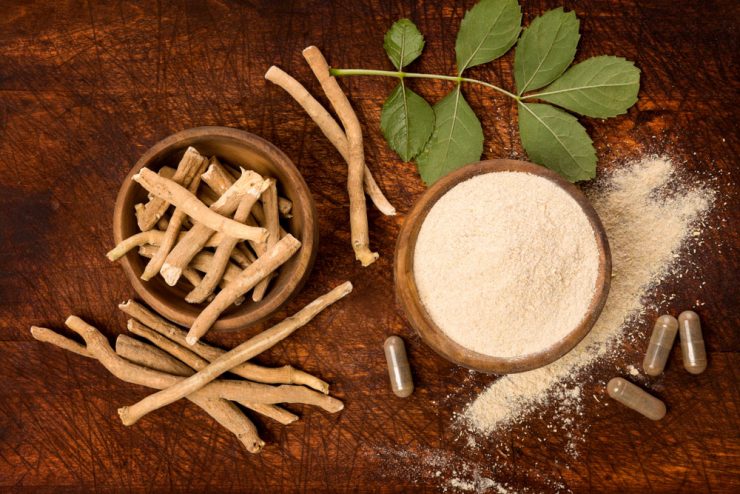Also known as winter cherry, ashwagandha (withania somnifera) flourishes in the dry areas of India and North America and plays an important part in ayurvedic medicine, the traditional medicine of India.
It is a plump evergreen shrub with oval leaves and yellow flowers, which produces bright red berries about the size of a raisin. While the leaves and fruit have valuable therapeutic properties, the root of the ashwagandha plant is the part most commonly used in Western herbal remedies.
WHAT ARE ITS ORIGINS?
The Sanskrit name ashwagandha means ‘that which has the smell of a horse’ and the plant was thought to endow anyone who took it with the strength, vitality and the sexual vigour of a horse!
The roots of the ashwagandha plant have been used for centuries by ayurvedic healers to treat inflammation, fever and to protect against infection and illness caused by famine. It has also been used to boost the immune system, improve memory and increase wellbeing.
Sometimes referred to as the ginseng of ayurvedic medicine, it is considered an adaptogen – a term used to describe herbs that improve physical energy and athletic ability. It is also said to increase immunity to colds and infections as well as boosting libido and fertility.
WHAT ARE ITS BENEFITS?
Being an adaptogen herb, ashwaganda helps to relax the nervous system as well as increasing strength and stamina. Studies show[i] that ashwagandha can help in the treatment of anxiety and depression and it is also said to help improve concentration and memory.
Its reputation as a general energy-promoting, disease-preventing herb may be built on its beneficial effect on the immune system. A number of studies [ii]have shown significant increases in white blood cell counts in mice given ashwagandha.
It is also a useful sleep aid [iii] [iv]– the ‘somnifera’ part of its botanical name is derived from the Latin word for sleep. In addition it can be used for pain relief and research shows it can help relieve arthritic pain and inflammation.
HOW DO I USE IT?
Unlike other adaptogenic herbs such as ginseng, ashwagandha can be used long term. It can be taken as a powder or in tablet form.
WATCHPOINT:
Ashwaghandha should not be taken if you are pregnant or breastfeeding.
[i] www.ncbi.nlm.nih.gov/pubmed/23653088
[ii] www.ncbi.nlm.nih.gov/pubmed/22182427
[iii] www.ncbi.nlm.nih.gov/pubmed/29953014
[iv] www.ncbi.nlm.nih.gov/pubmed/28207892
























Add comment